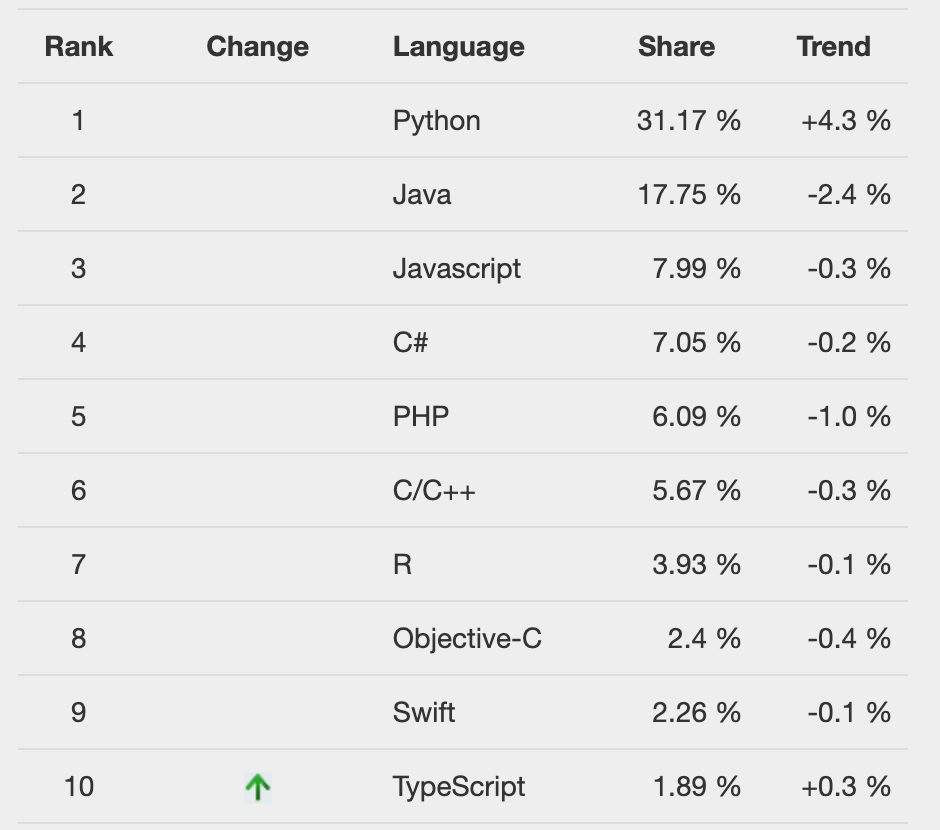Ready to write your first Hello, World! application? How about creating the next facebook/netflix/uber? Imagine your platform getting so busy that you then need to scale your application in the cloud to reach demand. Before you get your hopes up, how are you going to create this application? On what tech stack are you planning on building your epic new platform? Better yet, what programming language are you planning to develop with?
Here at ZonkeTech, we're using more than half of the Top 10 items on the list, and a few other language's that didn't even make the list. It goes to show that no matter what application you want to create, you have to know more than just 1 programming language well. In almost every project we use a combination of at least 2 programming languages.
Here is the Top 10:

We use a lot of Javascript for our Website Applications, alongside either, C#, PHP or Ruby. If we're developing native Mobile Apps, we have both Java and Swift to choose from. If we see there is a reason to go Hybrid Mobile Apps, we have Javascript again. If we need to create Desktop Apps, we have options of Java and C#, and for resource intensive ops, we fall back onto Python or C++ if we need to. When it comes to our cloud services for communication between apps and the database, we have a host of options here. We have choices that range from C#, Go, Javascript, C++, and the list goes on. Last but not least, we store most of our data in a relational database, and we use a scripting language called Structured Query Language (SQL) to access the data.
We know how difficult it is to get into a new programming language, and with the pace that our industry evolve's, it only gets harder. For this we are compiling a complete 101 guide into a Hello, World! application for each of the Top 10 Programming Languages. We will try and use a variety of Operating Systems running different languages. We will also include our setup for each of those languages, and where you can use it. We will not stop there though, we will also write a calculator in that language, so that you can see it work and use it for future.
Subscribe to our newsletter to get notified as soon as we release a new blog.
Happy Coding!





